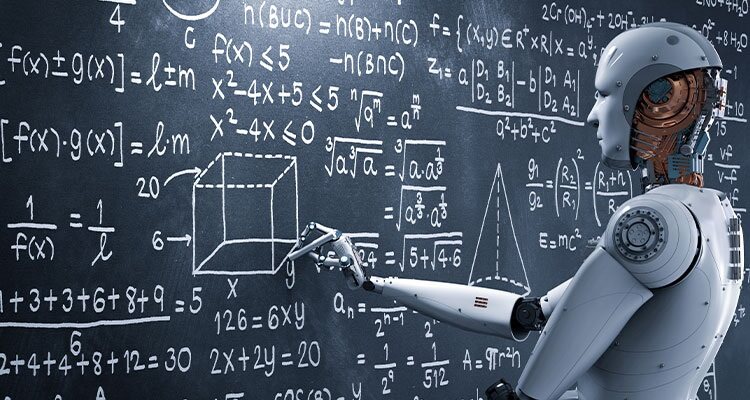
Joel Hutchines breaks down AI’s transformational role in boosting productivity for construction
The construction industry represents the bedrock of economic development and infrastructural growth across the globe. Known for its brick-and-mortar framework, it’s a high-stakes game where every decision, from project conception to execution, has the potential to change the course of events. The cost of poor decision-making is not just an abstract concept, it can translate into tangible financial losses that can turn promising projects into quagmires of inefficiency.
 This is where artificial intelligence (AI) comes into play. The industry is currently on the brink of a transformation, and AI is serving as a catalyst that can improve the entire process of building. In their insightful article, ‘The Hidden Traps in Decision Making’ (1998), John S. Hammond, Ralph L. Keeney, and Howard Raiffa expose the potential pitfalls in business decisions.
This is where artificial intelligence (AI) comes into play. The industry is currently on the brink of a transformation, and AI is serving as a catalyst that can improve the entire process of building. In their insightful article, ‘The Hidden Traps in Decision Making’ (1998), John S. Hammond, Ralph L. Keeney, and Howard Raiffa expose the potential pitfalls in business decisions.
The authors highlight how faulty decisions often stem from the process of decision-making itself, such as when alternatives are not properly defined, relevant information is not collected, or the costs and benefits are inaccurately gauged. Sometimes the fault lies with decision makers, whose cognitive biases and heuristics might inadvertently sabotage the decision. Anchoring, a bias the authors identify, is a particularly dangerous pitfall. It describes the tendency to give disproportionate weight to the first piece of information received, thereby influencing subsequent thought processes and judgments. This cognitive bias is glaringly evident in the construction industry, where initial cost estimates or project timelines can become immovable anchors, guiding all subsequent calculations.
An inaccurate cost estimate or ill-conceived timeline can cause spiraling budget overruns and delayed project completion. In their report, ‘Reinventing Construction: A Route to Higher Productivity’ (2017), the McKinsey & Company Global Institute confirms this. It found that large construction projects typically take 20 percent longer to finish than initially scheduled and are up to 80 percent over budget. This highlights the massive financial burden that poor decision-making can impose.
To steer clear of these biases and ensure better decision-making, the industry is increasingly looking towards AI. Unencumbered by human cognitive biases, AI provides a more objective viewpoint. It leverages its ability to process vast amounts of data to provide real-time, accurate cost and project assessments. Instead of anchoring to an initial estimate, AI constantly adapts and adjusts based on market trends and data. In the construction context, this could bring about a paradigm shift, revolutionizing every aspect, from cost estimation and risk management to logistics planning and design.
Predictability and proactiveness are a dream in construction where much of the time we are highly reactive to the situations that arise. AI, with its ability to learn from historical data and predict future trends, brings unparalleled insights to the table. Proactiveness, on the other hand, is all about foreseeing and mitigating potential issues before they become significant problems. Here, too, AI shines, using its predictive nature to identify potential bottlenecks and inefficiencies, and allowing construction managers to be proactive in their problem-solving.
But, it’s not just data that AI thrives upon. One of the most vital and underestimated components of this transformation is the value of experience. Consider the functioning of your favorite mapping apps. These platforms initially relied on static data to suggest routes. Today, they bank on real-time information and user experiences to predict traffic congestion, suggest alternative paths, and estimate delays due to unpredictable factors like accidents or weather. This is the power of merging data with experience – a model that the construction industry can greatly benefit from.
Within the realm of construction, each architect, engineer, program manager, and site supervisor hold a plethora of experiences. From understanding the nuances of materials to predicting on-ground challenges, their empirical knowledge is invaluable, but traditionally this wealth of knowledge has been passed down organically and haphazardly, without a structured platform. AI can revolutionize this by learning from these individual experiences, ensuring that a company’s collective knowledge isn’t siloed, but shared.
It’s not just about knowing how to build; it’s about understanding the best ways to build based on prior experiences. Research from McKinsey suggests that AI can boost construction sector productivity by as much as 15 percent. These tools, when integrated into daily operations, can deliver critical information to the right people at pivotal moments, enhancing efficiency and reducing costly errors. Imagine a future where a construction company, before starting a skyscraper in a new city, can access data-driven insights from past projects, factoring in local climate, labor trends, and material availability. AI-driven predictive models, trained on both data and human experience, can guide the company on potential challenges and solutions.
The construction industry is at a crossroads. Companies can either embrace AI, merging their vast reservoirs of experience and data to shape the future, or they can continue with the status quo, missing out on the massive efficiencies AI promises, and the value it can help create.
Joel Hutchines
www.slate.ai
Joel is a leader within an emerging approach to the construction industry. With his unique and diverse experience in carpentry, construction and manufacturing management, architecture, digital fabrication and business management, Joel is able to blend the traditions of construction with the latest techniques in digital design and fabrication. Following a successful tenure as Co-founder of Studio Workshop, he moved his focus to the future of the construction industry, adopting automation and the latest technology to explore efficient methods of integrating all stages of the design and construction process as Founder and CEO of Splash Modular.
By way of acquisition, Joel has now joined Slate Technologies Inc. As CPO, Joel works closely with a team that specializes in AI and machine learning in construction.